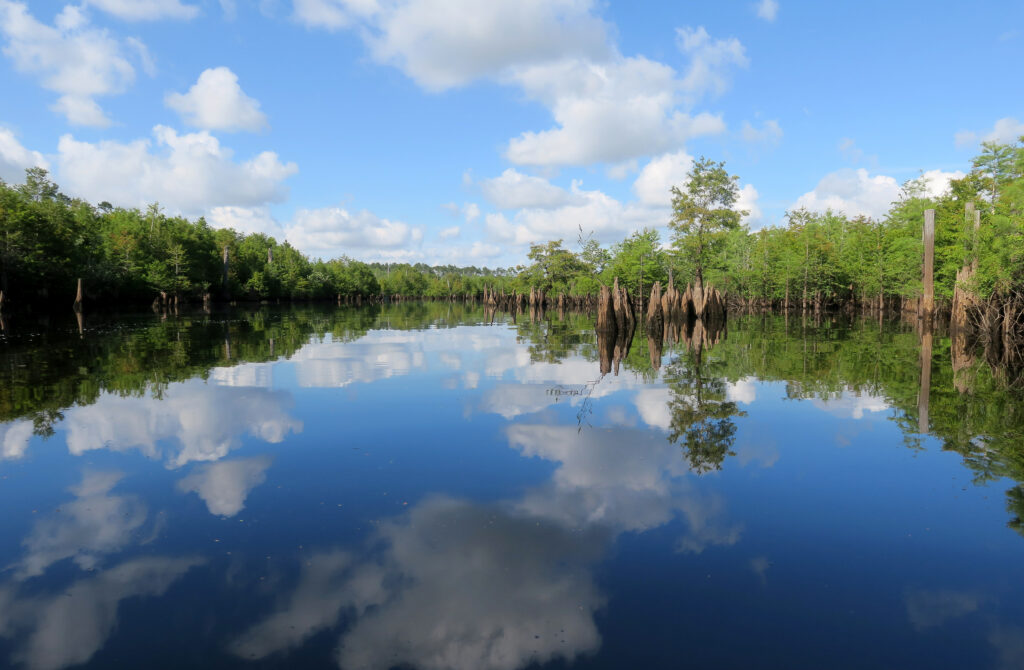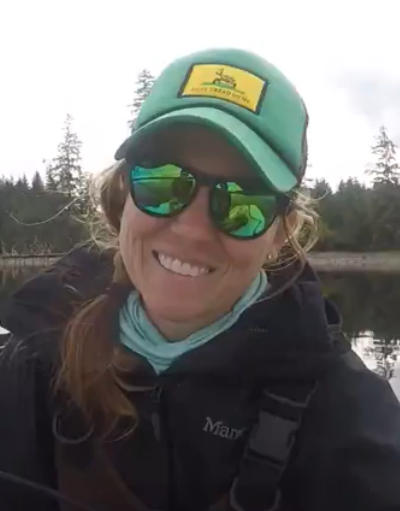By Cameron Baxley, Apalachicola Riverkeeper
When Florida’s Department of Environmental Protection (DEP) unveiled a plan to build a golf course at Jonathan Dickinson State Park in Martin County, the backlash was swift, strong and sure from the entire political spectrum.
Now, DEP is considering an equally destructive proposal — drilling for oil alongside the Apalachicola River, a resource Florida has spent decades and millions of state tax dollars fighting to protect and restore. I urge those who stood up for our state parks to now stand with the people of the Apalachicola River Basin and pressure DEP to abandon this reckless plan before it’s too late.
As with Jonathan Dickinson State Park, the Apalachicola River needs support from our statewide elected officials, particularly Chief Financial Officer Jimmy Patronis and Agriculture Commissioner Wilton Simpson. Their strong, early opposition to the golf course proposal was commendable, and now is the time for them to demonstrate that same commitment to another state treasure.

Both officials understand the river’s immense value to Florida’s environment, economy and communities. They know that contaminating this vital waterway with oil or toxic substances from the drilling process would come at a catastrophic cost.
Commissioner Simpson’s leadership at the Department of Agriculture and Consumer Services is pivotal. Among other duties, FDACS markets Florida seafood locally and internationally, recognizing that the bay and estuary, which nourish many species during their early life stages, are critical to sustaining that industry.
If oyster harvesting resumes next year as planned, his department will be responsible for licensing and inspection, ensuring public health and safety.
CFO Patronis has an even more personal connection. Born and raised in Panama City, just west of the river, he understands firsthand the importance of protecting this irreplaceable natural resource. His family’s seafood restaurant has thrived for nearly six decades, a testament to the vitality and legacy of the region’s waters.
When Commissioner Simpson and CFO Patronis speak out, it will cast a bright, urgent spotlight on the oil-drilling proposal and encourage others to join the call to action. Their leadership could make the difference between preserving a heritage or witnessing its irreversible damage.
Gov. Ron DeSantis and the Florida Cabinet have a compelling duty to protect Florida’s natural treasures, and that responsibility extends well beyond the borders of our parks.

Florida must commit to fostering more sustainable, long-term job creation, especially in rural communities that often miss out on economic growth but still feel the sting of recessions. While oil drilling may promise jobs and tax revenue, the risk far outweighs the reward. We must look to solutions that build prosperity without sacrificing the very resources that define our state.
On Dec. 9, we will be on the steps of DEP headquarters in Tallahassee, calling for Gov. DeSantis to direct DEP to rescind all support for the permit that would allow drilling for oil and gas in the Apalachicola River Basin.
Together, we can prevent this hazardous idea from becoming a disastrous reality — and in doing so, set a precedent that Florida’s natural legacy is not for sale, but for protection.
Let us act now, not only for the Apalachicola River, but for the future of all who cherish and depend on Florida’s environmental heritage.
Cameron Baxley is the Riverkeeper at Apalachicola Riverkeeper. To learn more about Apalachicola Riverkeeper’s work to stop oil drilling in the floodplain of the Apalachicola River, visit apalachicolariverkeeper.org. This opinion piece was originally published by the Tallahassee Democrat, which is a media partner of The Invading Sea. Banner image: The Apalachicola River basin area (Photo by Doug Alderson).
Sign up for The Invading Sea newsletter by visiting here. To support The Invading Sea, click here to make a donation. If you are interested in submitting an opinion piece to The Invading Sea, email Editor Nathan Crabbe at ncrabbe@fau.edu.



